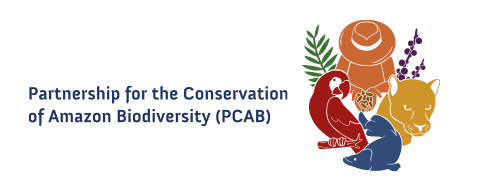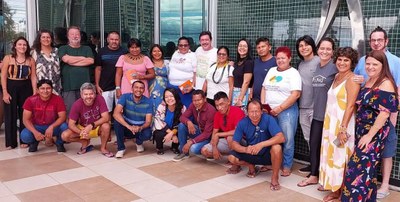Strengthening Alliances among Indigenous Organizations in Maranhão
April, 2024 – The Aliança dos Povos Indígenas pelas Florestas da Amazônia Oriental project launched on April 24 in Brasilia and recently planned activities with partner organizations in Maranhão.
This USAID-supported five-year initiative represents a step forward from its previous version, launched in 2019 and carried out by the Centro de Trabalho Indigenista (CTI) together with Instituto Sociedade, População e Natureza, in partnership with the following Indigenous organizations: Wyty-Catë Association of the Timbira Communities of Maranhão and Tocantins, the Coordenação das Organizações e Articulações dos Povos Indígenas do Maranhão and Articulação das Mulheres Indígenas do Maranhão.
The project will focus on forest restoration, recovery, and protection. It will train environmental agents and Indigenous communicators. It will develop and implement territorial and environmental management plans (PGTAs); and foster micro and small community projects with support for conservation, sociocultural reproduction, and income generation enterprises.
The program focuses on engaging Indigenous women in socioenvironmental conservation, training programs, meetings, expeditions, and strengthens technical and political training of Indigenous leaders and partner organizations.
The project will support the Timbira (Apanjekrá Canela, Apinajé, Pycopcatijij Gavião, Krahô, Krikati, Memortumré Canela, Krenje e Krepymcateje) and Tupi (Awa, Tenetehara e Ka´apor) peoples, and will directly benefit 14 Indigenous lands.
“The continuity and expansion of the project reinforces the partnership between the Timbira and Tupi Peoples, and reiterates the commitment to conserving the biodiversity of their territories, for the benefit of these peoples, directly, and for the entire planet, indirectly”, said Pollyana Mendonça, responsible for monitoring the project.
The immersion program included a broad analysis of the situation, a general alignment of expectations, and the codesign of strategies for integrated environmental and territorial management in the participating territories. Actions for this year include evaluation, planning, and monitoring activities. In total, the project covers more than 2 million hectares of Indigenous land.
Learn more about this project on the CTI website.



